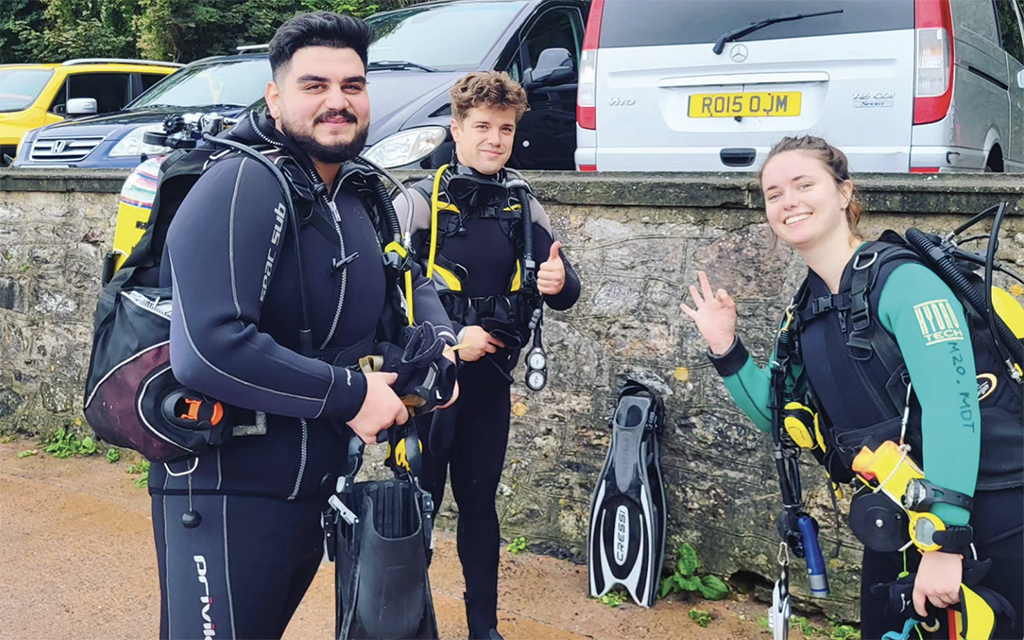
Exeter University Sub Aqua Club is a small university club that thinks big, striving to make diving affordable without direct financial support from the uni. Interview by Kristina Pedder.
When was the club formed?
A founding date of 1975 is a best estimate from the oldest EUSAC alumni that we have encountered. As a university club, we suffer from information loss due to our three-year churn, as most members come and go on a degree-course based cycle.
How many members come and go each year?
We had a massively busy freshers’ week in 2023, running three try dives for our largest ever turnout of 23 divers. In total we have around 60 members.
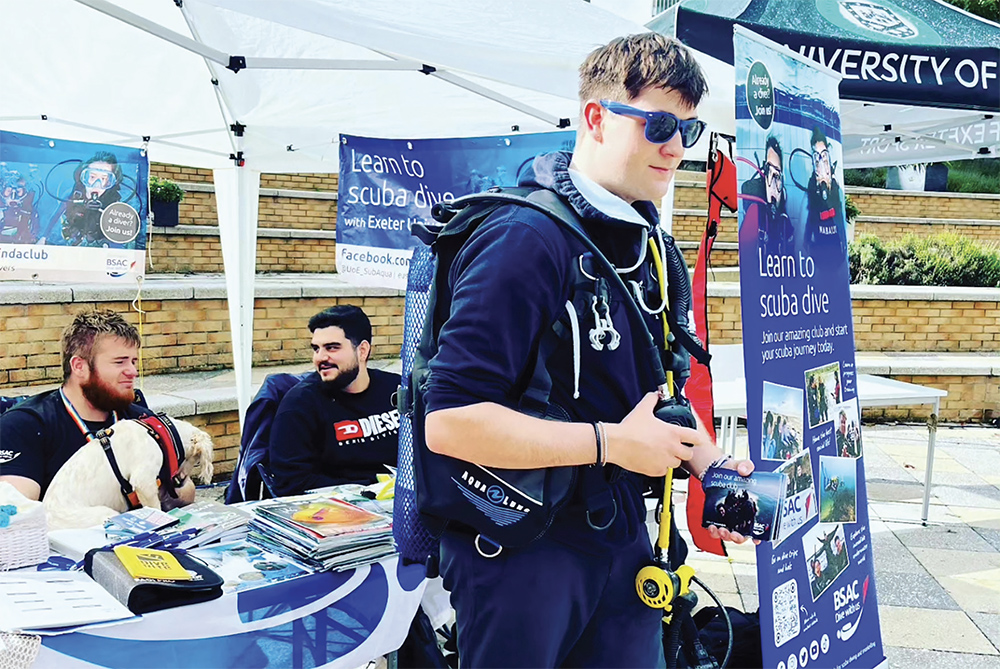
Who are your members?
We have Ocean Divers, Sports Divers, Dive Leaders, Open Water Instructors and Assistant Open Water Instructors. We do not have any Advanced Divers or First Class Divers. Members are mostly students and faculty. We heavily subside their progression, as we are almost always training the next generation of our committee. We are helped by our alumni Iain Logan and Laura Bramwell, who have worked so hard to support the club.
How do you make diving affordable?
Our annual fee includes air and equipment rental. We offer free access to socials and commercial diver talks (subjects range from underwater micro photography to rebreather diving and cave diving) and any trips are always run at cost. We maintain a stock of 18 regulators, 40 BCDs and 25 cylinders; we also provide full protective equipment including semi-dry wetsuits, hoods, boots and gloves. Equipment secretaries Mathew Atkins and Jake Curry work very hard to maintain our kit. We simply couldn’t keep going without the help of T.H. Dive Services in Plymouth, where we regularly get our kit serviced.
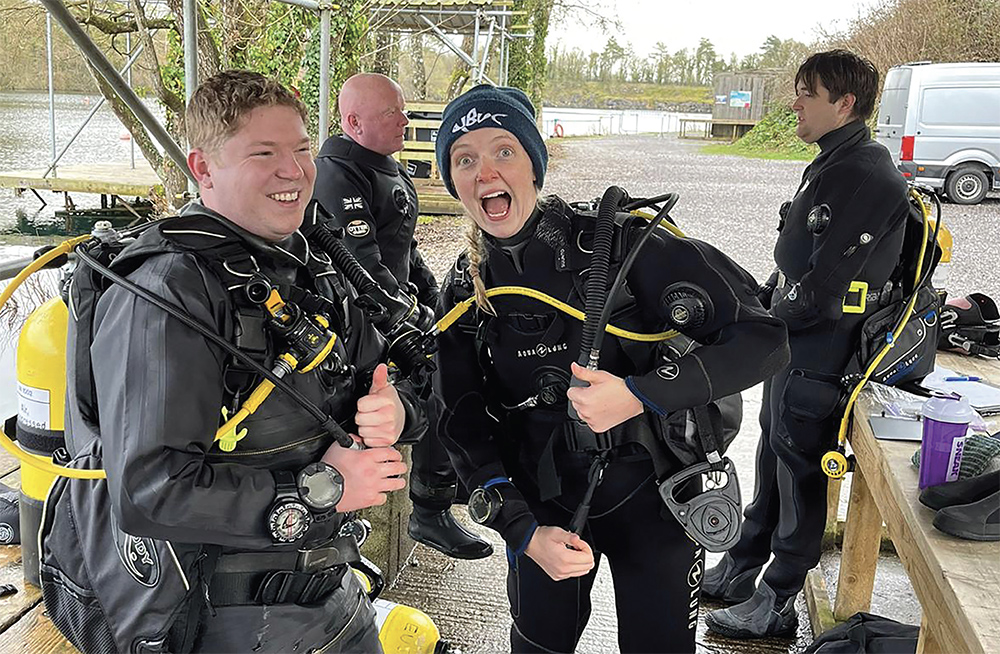
Do you get financial support from the university?
Sadly not, so we have to raise money regularly for the club and its services to continue. Ocean Diver training raises funds, which covers the servicing costs for our equipment. Our current Captain Daisy Kearley started the year by crocheting several plush aquatic animals, which we then raffled off with a few other scuba prizes and raised £300, which really helped. Funding is an area where we are open to building a relationship with local business should they be interested in us running team building try dives or working alongside the university’s marine biology department.
What is day-to-day club life like?
We train in St Lukes Pool and in a university building almost directly opposite, so we keep things simple. We have access to a storeroom beside the pool, which we lovingly refer to as our Animal House. We have a very small compressor that our volunteers work on night and day. We recently sold our old club boat, but Plymouth Sound BSAC and Exeter BSAC have been a real help to us as local partners. We rely on their generosity to get our members out on RIB dives. We hold several flexible memberships with Plymouth Sound, enabling members to dive with them at fuel costs. They have been nothing but accommodating.
This year hasn’t been the best weather-wise, massively affecting the visibility on local dives. This hasn’t stopped our divers from getting into the water. The club has been on 11 local diving trips since the start of the academic term in September and a week abroad in Malta. Our Christmas meal organised by Social Secretary Mathew Aitken was a success with 13 people attending a lovely meal, followed by a visit to the pub.
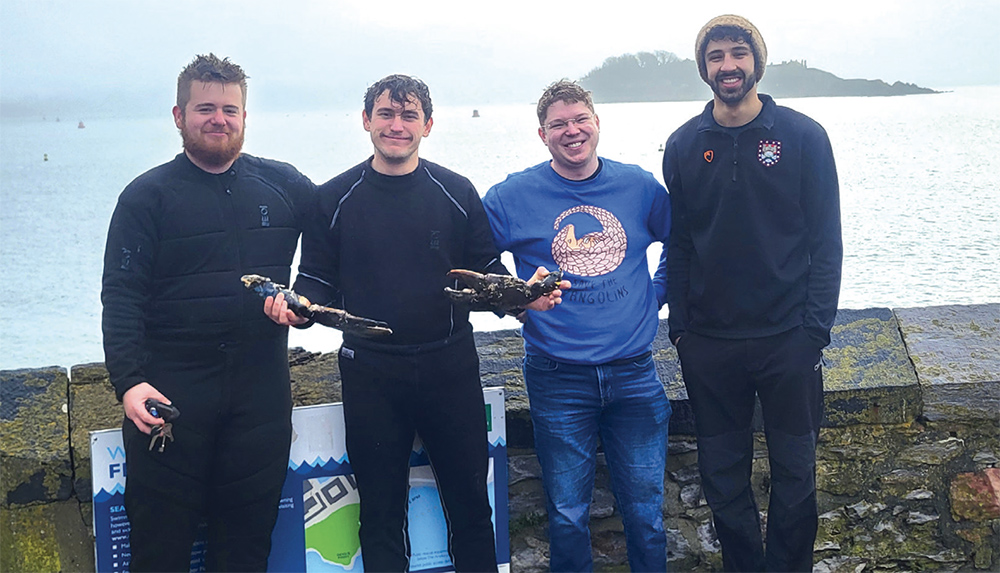
Where do you go diving?
At a range of shore diving sites near us, including Beacon Cove, Babbacombe beach, Brixham breakwater, Exmouth docks, the Waterfront and the Eastern Kings in Plymouth. We also dive at local inland sites Vobster and Cromhall; and we organise RIB dives from Portland with Terry Cox and Malcolm Strickland from Portland BSAC, kind retired gentlemen who help us out occasionally with training and reasonably priced diving around Portland and the Dorset coast. They have been longstanding EUSAC helpers and we are forever grateful. Several deeper dives have been conducted recently off Eastern Kings in Plymouth. These are brilliant, as EUSAC has previously been very focused on training and this has driven away some of our more experienced university classmates.
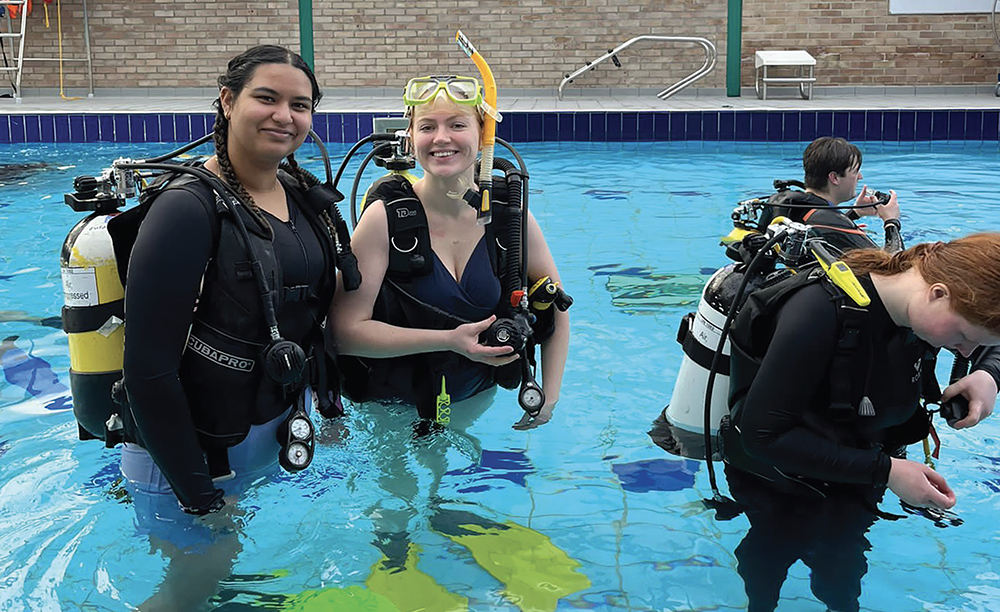
What does your instructor team look like?
We have Training Officer Megan Gardner (Assistant Open Water Instructor - AOWI), OWIs Laura Bramwell and Iain Logan, AOWIs Daniel Rosen, Bryony Hobden and Euan Nicholas, who all work very hard to ensure our members have a great time learning with EUSAC. Our TO has been fantastic, organising three training weekends for our Sports and Ocean Divers. We even managed to get four Ocean Divers and a Sports Diver through open water training in the first academic term. This is a new record for us.
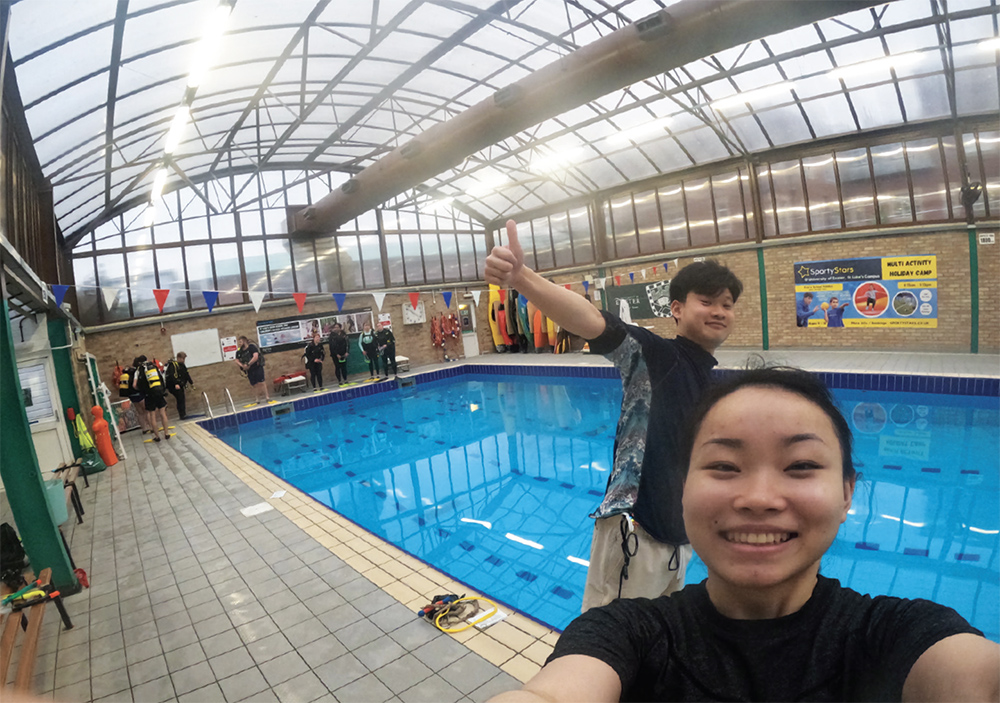
What training do you provide?
Each year we have around 22 Ocean Diver trainees. We also regularly invest in sending our Sports Divers on Instructor Foundation Courses to meet demand for instructors. Oh, and we should mention that we emphasise teaching sustainability in our diving.
What does greener diving look like to you?
We regularly remove litter and plastics from the sites that we dive, and were recently involved with the 1000 Tyres Project. This is a community enterprise that involves lots of enthusiastic volunteers working alongside the project team. You can find out how to get involved on their website. The aim is to remove tyres and other pollutants from our marine environment, starting by cleaning up Plymouth Sound in Devon. Up-and-coming trainee Dive Leaders Euan Nicholas and Francesca Molinari also led an underwater litterpick for EUSAC divers.
Do you run any Skill Development Courses?
Sadly we do not, we focus purely on the Diver Training Programme; but it is something we would love to work on with other local BSAC clubs if there’s an opportunity. We are always looking for ways to work with local clubs, and by providing free gear rental to our members we are opening up a lot of opportunities for them with local diving companies such as Teign Diving Centre, which offers additional discount on trips.
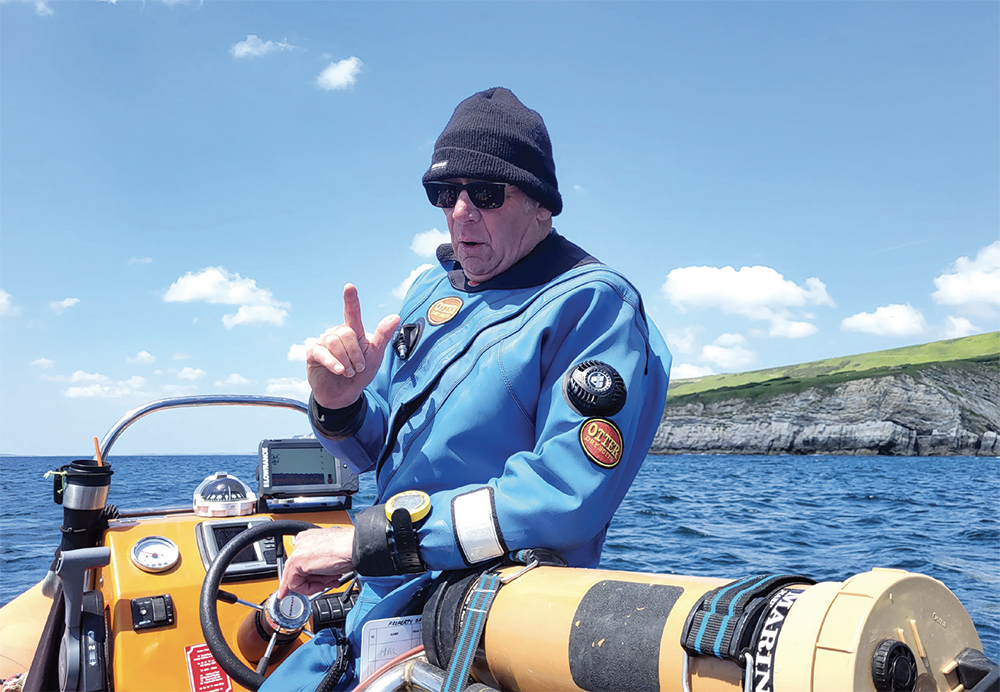
Where does open-water training take place?
Our regular training weekends need to take place early in the season, almost always in October and January, to fit in with exam periods, so we often have problems with the weather. Being so near the sea we can easily cancel and pivot to an inland site. A recent very chilly weekend at Cromhall Quay saw 13 new, very hardy Ocean Diver trainees, who refused to back down and reschedule, complete more than 60 per cent all of the lessons planned for the day. A massive thank you to Daniel Montegue (our ex-club captain from five years ago) and Kevin Betts (an OWI who occasionally helps out) for their help.
What’s on the horizon for EUSAC?
With yet another brand new committee just starting out we have achieved a lot this year; plenty of local diving in terms one and two, a time when we have previously struggled to get out due to poor weather. Club planning is quite hard because of the frequent changes to the committee, but we want to continue to work with local clubs and give opportunities to our local student divers or potential divers. We hope to raise awareness that Exeter is a great university club to work with.
How do I find scuba diving in southwest England?
If you're looking to scuba dive in Devon with Exeter University Sub Aqua Club, please contact subaqua.captain@exeter.ac.uk.
This Club Focus was originally published in SCUBA magazine, Issue 146 June 2024. For more membership benefits, visit bsac.com/benefits.




